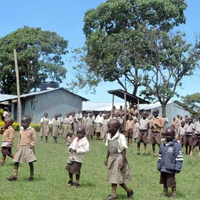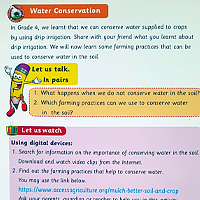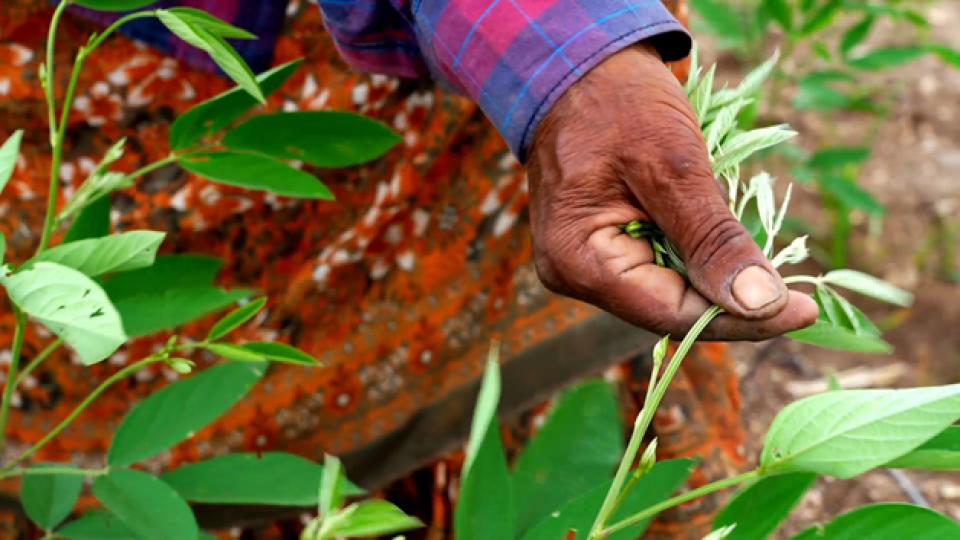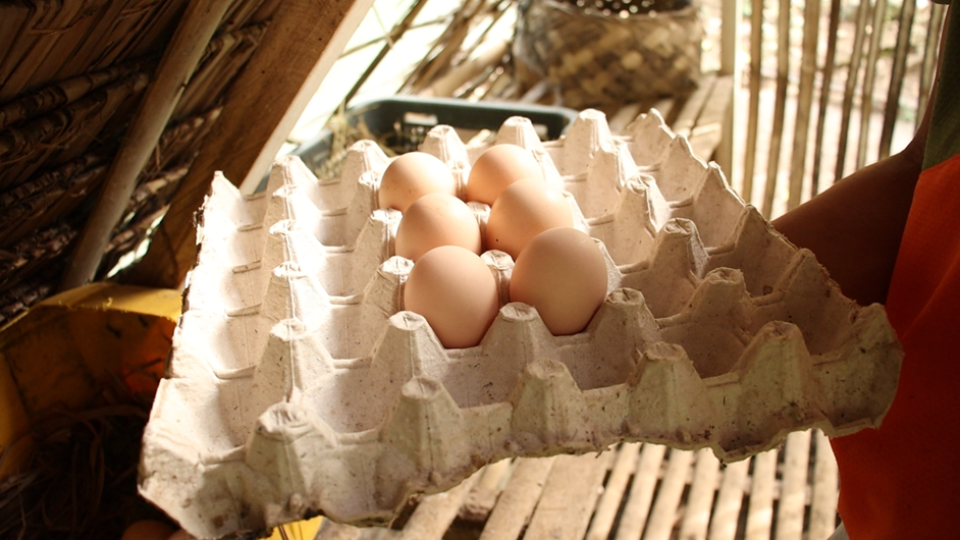

Kenyan schools recently moved away from memorising facts, and towards learning skills, knowledge and attitudes. This “competency-based curriculum (CBC)” includes new topics like ICT, and agriculture. Lawrence Njagi, the CEO of Mountain Top Educational Publishers, explained that the challenge was finding a way to integrate both subjects. He eventually decided that the best way was with videos from Access Agriculture.
In 2020, Mountain Top published a new textbook for fourth and fifth graders, to build students’ confidence step-by-step. The textbook lists URLs for almost 20 videos on Access Agriculture, on gardening, legumes, pumpkins, small animals, innovative gardening, and mulching. Teachers help students to pick a video topic, type in the URL and watch it.
“They can watch the videos in either English or Kiswahili”, Lawrence explains. “It was great, because they could hear the voices of African people on the videos.”
Ninety percent of the schools in Kenya are on the national electric grid, and 70% of those have access to Wi-Fi, including some schools in poor and remote areas. Watching the videos was “an equalising factor for those who could download,” Lawrence says.
The students watch a video on, for example, making a vegetable seedbed. The textbook comes with a teachers’ guide that explains how to lead the children in a project. The teacher organises them in groups and the kids make a seedbed and plant kale in the school garden. The children also watch videos on how to make compost. Then they make the compost and fertilise their vegetables.
The project lasts a whole term. The kids eat some of the vegetables, and on Parents’ Day, the proud students show their produce to the adults, who are allowed to buy some, teaching the students another valuable lesson: farms can make money.
This is important, because the Kenyan government is now encouraging young people to stay in the countryside. There are no more jobs in the cities. Young Kenyans have to employ themselves, and feed others while ensuring that Kenya is a food sovereign nation.
Kenya’s schools were closed for the Covid pandemic, but they opened in October and November of 2020. During the closure, some schools and students tried to continue their studies with textbooks, educational TV and radio, and the internet. Some continued to watch Access Agriculture videos during the lockdown.
It is too soon to judge how well the learning videos have helped teach the next generation of farmers to have a good attitude about farming, but the stakes are high: Kenya has 1.2 million pupils in each of the grades 4 and 5, in 25,000 schools. When they sit for their exams in July of 2021, Mountain Top and the educators will measure the results of the videos. But Lawrence is optimistic. “We are equipping the children to produce food for themselves, and to sell.”
Watch related Access Agriculture videos
Mulch for a better soil and crop
Access Agriculture videos in Kiswahili
Access Agriculture has 130 videos in the Kiswahili language. Check them out here.
Videos in other languages of Kenya
Access Agriculture has videos in some of the other languages of Kenya as well: Ateso, Dholuo, Kalenjin, Kiembu, Kikuyu, Luhya, and Samburu.


